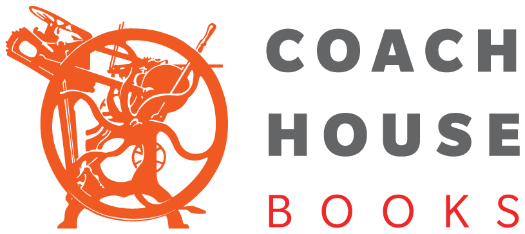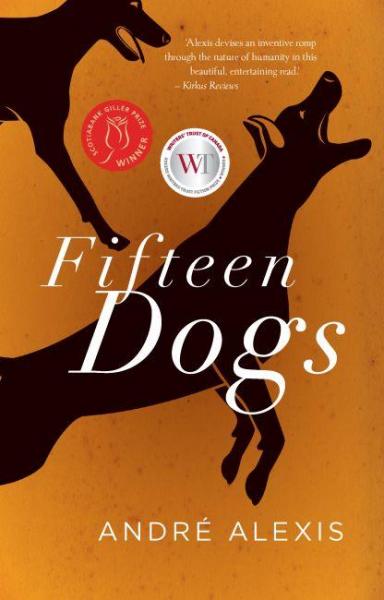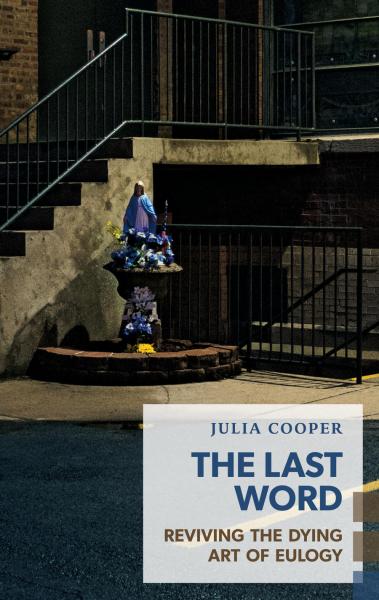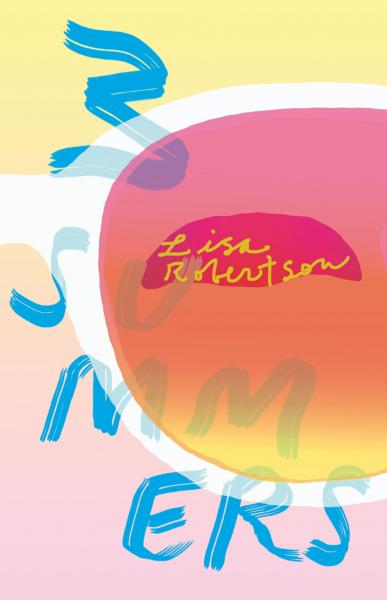- Categories:
Small Press Profile: Coach House Books
- By Liz Button
Canadian publisher Coach House, located in an historic coach house on the University of Toronto campus, publishes innovative literary fiction, poetry, film and drama, works in translation, and select nonfiction, including a series of books about Toronto.
 Led by publisher by Stan Bevington, one of the company’s original founders, and editorial director Alana Wilcox, Coach House releases 18 to 20 books a year, including four to seven literary fiction titles. The publisher’s coach house offices, constructed in the 1850s, house two Heidelberg printing presses and binding equipment, where Coach House prints all its books. Coach House Books are distributed in the U.S. by Consortium Book Sales & Distribution.
Led by publisher by Stan Bevington, one of the company’s original founders, and editorial director Alana Wilcox, Coach House releases 18 to 20 books a year, including four to seven literary fiction titles. The publisher’s coach house offices, constructed in the 1850s, house two Heidelberg printing presses and binding equipment, where Coach House prints all its books. Coach House Books are distributed in the U.S. by Consortium Book Sales & Distribution.
 “I think the fact that we print our own books is something that separates us from a lot of our peers,” said Wilcox. “We have a lot of advantages doing that for sure — we can print fewer copies on a first run and when we need more I just yell downstairs, which is pretty handy since you don’t need to wait six weeks. Also, it’s so lovely for the authors. We had an author come by the other day to help glue the first copy of her book. It’s a nice moment that most publishers don’t get to be a part of.”
“I think the fact that we print our own books is something that separates us from a lot of our peers,” said Wilcox. “We have a lot of advantages doing that for sure — we can print fewer copies on a first run and when we need more I just yell downstairs, which is pretty handy since you don’t need to wait six weeks. Also, it’s so lovely for the authors. We had an author come by the other day to help glue the first copy of her book. It’s a nice moment that most publishers don’t get to be a part of.”
Four people work on the publishing side of the operation, said Wilcox, while seven people work on the printing side. Through the years, the company’s printing staff has produced books and various printed materials for many of Canada’s other literary presses as well as for the university.
“Coach House really looks to publish what we like to call more adventurous books; that’s not to say not successful, but focusing less on the kind of work that the big houses would publish … more experimental poetry or poetry at all, really, and fiction that is a little more inventive,” said Wilcox, who represented Coach House at the Winter Institute’s new publisher consultations. “We publish what I think of as a nice balance between new voices and more established voices.”

Coach House’s fiction and poetry have received numerous nominations for both Canadian and American awards, including the Griffin Poetry Prize, Toronto Book Awards, Lambda Literary Awards, Libris Awards, and the Ontario Premier’s Award for Excellence in the Art. The publisher’s most recent hit, with 150,000 copies sold, was Andre Alexis’ Fifteen Dogs, which won the $100,000 Giller Prize in 2015. The Giller, one of Canada’s most prestigious literary awards, recognizes a Canadian author of a novel or short story collection published in English the previous year.
Fifteen Dogs starts with the Greek gods Hermes and Apollo drinking in a bar and arguing about whether humans can be happy. They make a wager to give human consciousness to 15 dogs at a nearby vet; the bet is whether any of them will be happy by the time they die.
Another perennial seller for Coach House is the 2005 experimental poetry book Eunoia by Christian Bök, which won the Griffin Poetry Prize. Its title, the shortest word in English that contains all five vowels, is derived from the Greek word meaning “beautiful thinking.” Eunoia is structured as a five-chapter book in which the first chapter has A as its only vowel, the second chapter E, and so on.

In addition to books written in English, Coach House Books publishes two books a year in translation by Quebec’s French-speaking authors, including poet Nicole Brossard, author of Fences in Breathing and White Piano.
“It’s interesting to me how there seems to be a real moment for translation, but somehow not for translation from Quebec,” said Wilcox. “Even though Quebec is in our backyard, it’s quite a different culture so that the literature produced there is familiar but not entirely familiar.”
Among the titles releasing this month and next that Wilcox is excited about are Shot-Blue by Jesse Ruddock, which was featured in the January LitHub article “30 Indie Press Books We’re Looking Forward To”; the highly anticipated Feel Happier in 9 Seconds, a book of poems by Lisa Besner; Treasure Island, a play by Nicolas Billon; Dead White Men, a collection of poetry by Shane Rhodes; and Suzanne, a novel by Anais Barbeau-Lavalette.

“There is something that connects all the books we do, although it might not be completely evident to other people,” said Wilcox. “We publish work that is uncompromising, I would say. For example, our series of books about Toronto, uTOpia, is politically definitely on the left side of things,” addressing topics like environmentalism, sustainability, and the arts.
In that vein, Wilcox said, Coach House has also been focusing a lot on their Exploded Views series, comprised of short pieces of cultural journalism. One such title publishing in May, The Last Word: Reviving the Dying Art of Eulogy by Julia Cooper, on the nature of how people grieve, was a favorite of booksellers at the Winter Institute, she added.
Other notable successes in recent years include the racy 2012 novel Maidenhead by Tamara Faith Berger, which won the Believer Book Award; 3 Summers, a book of poems by Lisa Robertson, published in October 2016; and Alexis’ newest novel The Hidden Keys, released in September.

